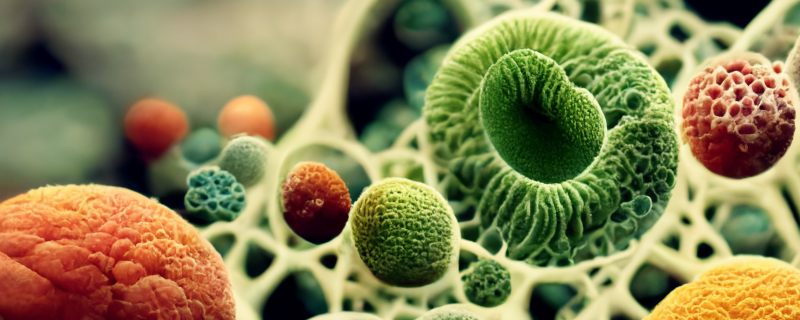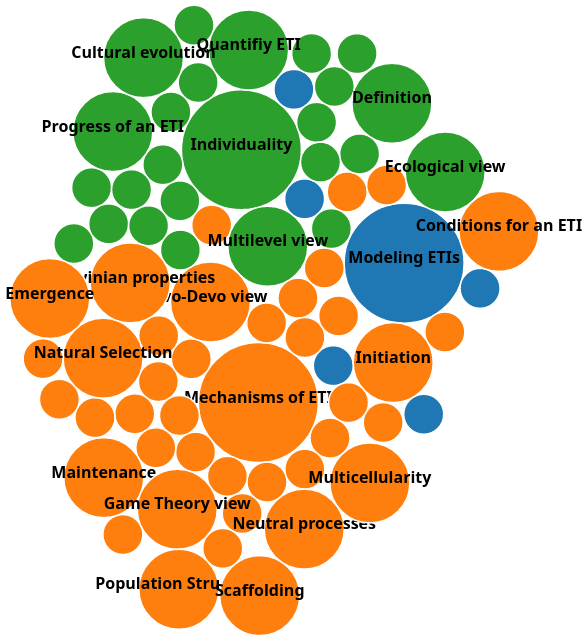Participant Guidelines
- Chalk Talks: Presentations are 20 minutes long, including time for discussion (We recommend 12 minutes talks and 6 minutes discussions, keeping 2 minutes for setup). We will provide a blackboard, chalks, pen and paper.
- Posters: The poster session is on Tuesday at 5pm, and the posters will be up all week for discussion during coffee breaks. Posters should be in a A0-portrait format.
- Contact: Feel free to contact us at workshops@evolbio.mpg.de, doulcier@evolbio.mpg.de or p.bourrat@gmail.com.
- Venue: The workshop will be held at the Max Planck Institute for Evolutionary Biology in Plön. Directions are available on the institute's website.
- Walk and boat trip: We will have a short walk on the lake shore followed by a boat trip to the restaurant on Wednesday evening. Please bring 6.50€ in cash to cover for the boat ticket.
- Farewell Barbecue: We will have a donation-based Farewell barbecue on Friday evening. Other meals and non alcoholic beverages are covered by the workshop.
- Offline: The workshop is made to host interactive chalk talks and discussion about ongoing research, which is not well adapted to an hybrid online-offline format. There will be no video transmission of the talks.

Schedule
Monday
- 16:30 Beginning of the check-in
- 18:30 Dinner - Lecture hall
- 19:00 Introduction to the workshop
Tuesday
- 9:00 Welcome
- 9:10 Arne Traulsen Growth competition between life cycles characterized by fragmentation patterns
- 9:30 Peter Conlin On the entrenchment of multicellularity
- 9:50 Daniel Cooney A PDE model for protocell evolution and the origin of chromosomes via multilevel selection
- 10:10 Joanna Summers The evolution of developmental regulation in a simple multicellular life cycle
- 10:30 Coffee Break
- 11:00 Sylvain Charlat Evolution in the soup: Can natural selection precede individuation? Part 1
- 11:20 Etienne Rajon Evolution in the soup: Can natural selection precede individuation? Part 2
- 11:40 E. Yagmur Erten Cancer and evolutionary transition to multicellularity
- 12:00 Phillipe Huneman Ecosystems and agents as two sides of a transition
- 12:30 Lunch - Cafeteria
- 13:30 Group Discussion - ETI in the abstract: Individuality, Classification, Emergence
- 15:30 Coffee Break
- 16:00 General Discussion - ETI in the abstract: Individuality, Classification, Emergence
- 17:00 Poster Session - Lecture hall
- 18:30 Dinner - Seeprinz (Plön)
Wednesday
- 9:00 Welcome
- 9:10 Tazzio Tissot Synchronisation of decision behaviours and the transition from individual decisions to collective decisions
- 9:30 Richard Watson Higher-level individuality as a product of life-cycle synchronisation
- 9:50 Konstantinos Alexiou A Stochastic Multiscale Modelling Framework for the Evolution of Phenotype-Structured Cell Populations.
- 10:10 Renske Vroomans Emergent reproductive strategies at the transition to multicellularity
- 10:30 Coffee Break
- 11:00 Wenying Shou Inheritance of collective-level traits
- 11:20 Jyotsna Kalathera Population bottlenecks drive the evolution of distinct life-history strategies in the populations of aggregative multicellular bacterium Myxococcus xanthus
- 11:40 Ellen Clarke Individuals in transition
- 12:00 Paulien Hogeweg Who is more "Individual" ? Comparing three major transitions emerging in constructive evolutionary computational experiments
- 12:30 Lunch - Cafeteria
- 13:30 Group Discussion - Diachronic view: Mechanisms of Initiation and Maintenance - Progress of an ETI
- 15:30 Coffee Break
- 16:00 General Discussion - Diachronic view: Mechanisms of Initiation and Maintenance - Progress of an ETI
- 16:20 Departure for Fegetasche
- 17:00 Boat Trip - Boat Pier Fegetasche
- 18:30 Dinner - Landgasthaus Kasch (Timmdorf bei Malente)
Thursday
- 9:00 Welcome
- 9:10 James Griesemer Conceptualizing Dynamic Developmental Scaffolds
- 9:30 Rutger Hermsen Emergent multilevel and multiscale selection in a simple spatial model of the evolution of altruism
- 9:50 Enrico Sandro Colizzi Evolution of multicellular individuality in antibiotic-producing bacteria
- 10:10 Johannes Martens Darwinian indivisibility, egalitarian transitions and the 3-layered model
- 10:30 Coffee Break
- 11:00 Afra Salazar (How) Can we artificially manipulate individuality in multispecies communities?
- 11:20 Christian Kost Do obligate dependencies fuel transitions in individuality?
- 11:40 General Discussion
- 12:30 Lunch - Cafeteria
- 13:30 Group Discussion - Viewpoints on ETIs: Ecology, Development, Game Theory, Selection
- 15:30 Coffee Break
- 16:00 General Discussion - Viewpoints on ETIs: Ecology, Development, Game Theory, Selection
- 17:00 Wrap-up
- 18:00 Dinner - Brasserie am Schloss (Plön)
Friday
- 9:00 Welcome
- 9:10 Simon van Vliet The role of multilevel selection in the evolution of microbial communities
- 9:30 Jordi van Gestel Microbial development
- 9:50 Jessica Flack Hourglass Emergence
- 10:30 Coffee Break
- 11:00 General Discussion - The future of ETIs as a research field
- 12:30 Lunch - Cafeteria
- 13:30 Group Discussion - Toward a general theory of ETIs: Conditions, Quantification, Models
- 15:30 Coffee Break
- 16:00 General Discussion - Toward a general theory of ETIs: Conditions, Quantification, Models
- 17:00 Wrap-up
- 18:30 Dinner - Barbecue at the Institute
Poster session
- Bram van Dijk Spatial structure prevents the emergence of virulence in environmentally transmitted microbiomes
- Laura Forero-Junco The Viral World in the Phyllosphere
- Guilhem Panneau Microbiome, spatial organization and evolutionary transition of individuality
- Gisela Rodriguez Short- and long-term strategies for the evolution of a specialized bacteria life cycle
- Alejandra Ramirez Chaos and noise: disorder in population dynamics
- Tuan Pham Double-replica theory for evolution of genotype-phenotype interrelationship
- Nikil Sharma Evolutionary Graph Theory (EGT) aims to understand the interplay of natural selection and genetic drift in spatial structures.
- Nam Le The Role of Plasticity in the Emergence of New Levels of Biological Individuality

Group Discussions
We have compiled and sorted the 50 questions about evolutionary transitions in individuality deemed the most pressing/interesting according to the topic survey addressed to all participants of the workshop. They will be used as the starting point for the group discussions.

